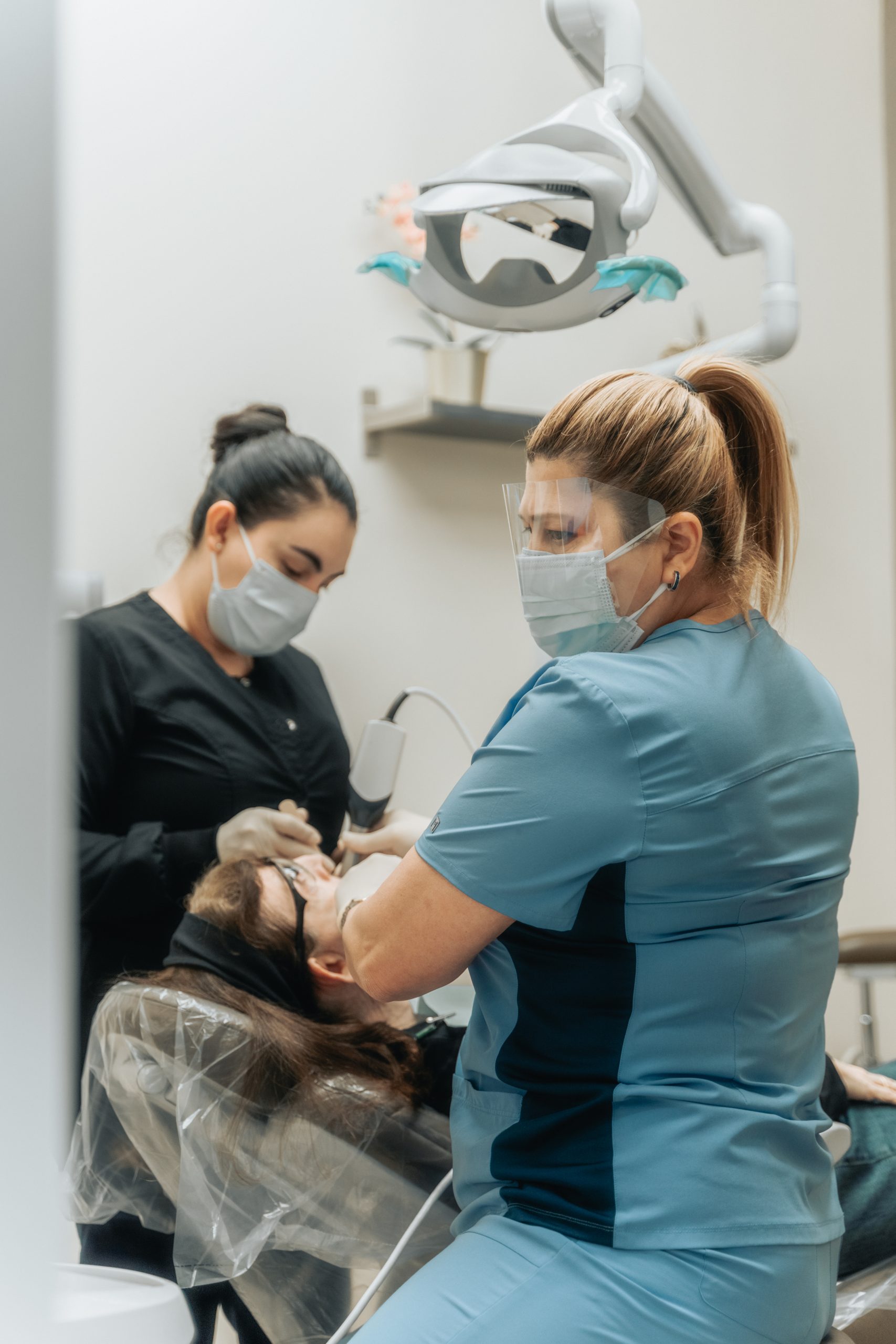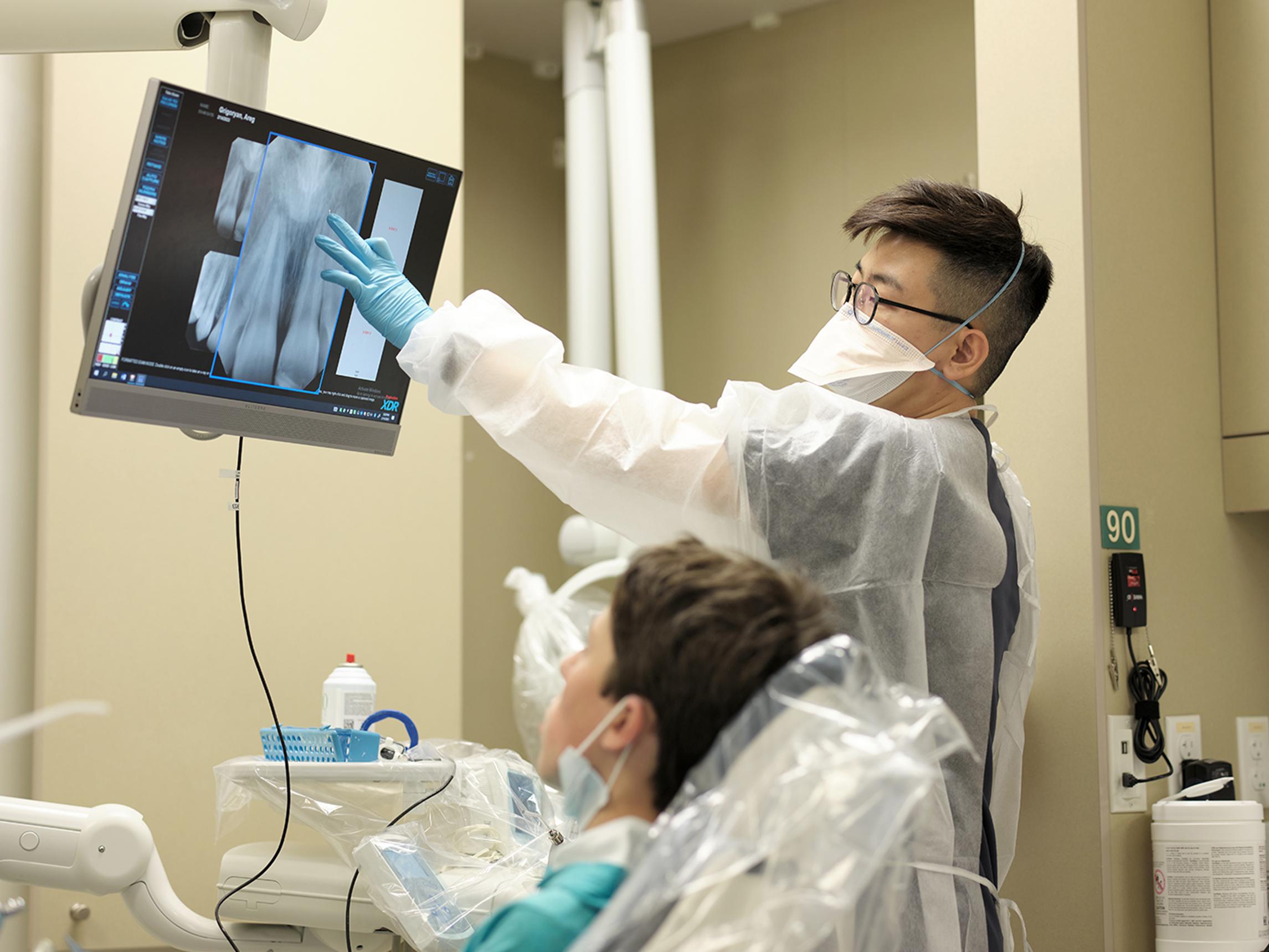Find the Best Dentist in Eugene Oregon for Your Family members's Dental Needs
Learn More About Frequent Oral Problems Your Dental Practitioner Can Deal With
Comprehending regular oral concerns is essential for maintaining ideal dental wellness. Concerns such as tooth cavities, gum illness, tooth level of sensitivity, negative breath, and tooth decay are typical yet often overlooked until they end up being serious. Normal dental sees and individualized care plans can resolve these troubles effectively, ensuring a healthier and brighter smile.
Tooth Cavities
Cavities, likewise understood as dental decays, are a common dental wellness issue brought on by the demineralization of tooth enamel because of acid production from microbial plaque. This process begins when microorganisms in the mouth metabolize sugars and starches from food, creating acids that erode the enamel. Otherwise addressed without delay, this erosion can pass through much deeper right into the tooth, affecting the dentin and at some point the pulp, potentially bring about severe discomfort and infection.
The onset of cavity formation commonly present as white areas on the tooth surface, suggesting preliminary demineralization. As the process proceeds, these areas can become black or brownish sores, symbolizing more substantial degeneration. Routine oral examinations are vital for early detection, as tooth cavities in their inceptive stages can be treated with remineralization methods, such as fluoride therapies.
Once a tooth cavity has actually formed, corrective intervention is necessary. Dental experts generally eliminate the corroded section of the tooth and load the dental caries with materials such as composite resin, amalgam, or ceramic. In more severe cases, a crown or origin canal therapy may be required. Safety nets, consisting of excellent dental hygiene methods and dietary alterations, play an essential role in reducing the risk of cavities.
Periodontal Disease
While dental caries represent a significant concern for dental health and wellness, another important issue that requires attention is gum disease. Also referred to as periodontal illness, periodontal illness is an inflammatory condition impacting the tissues bordering and sustaining the teeth. It is mostly triggered by the buildup of plaque-- a sticky movie of bacteria that bases on teeth.
Gum disease progresses via phases, starting with gingivitis, characterized by redness, swelling, and hemorrhaging gums (eugene dentist). If left untreated, gingivitis can rise to periodontitis, where the internal layer of the periodontal and bone retreat from the teeth, developing pockets that come to be infected. Gradually, the toxic substances created by the microorganisms break down the bone and connective tissue that hold teeth in area, possibly causing missing teeth
Early discovery and therapy are essential. Expert dental cleansings and boosted oral hygiene methods, such as brushing two times day-to-day and flossing, can take care of gingivitis. For even more innovative phases, therapies may consist of scaling and root planing, prescription antibiotics, or even surgical interventions.
Routine dental check-ups play a pivotal duty in protecting against and taking care of gum disease. Dental professionals can identify early indications and suggest suitable interventions, guaranteeing the upkeep of healthy periodontals and total oral wellness.
Tooth Level Of Sensitivity
Tooth level of sensitivity affects countless individuals worldwide, presenting a common yet typically distressing dental issue. This problem arises when the enamel, the outer protective layer of the teeth, is jeopardized, disclosing the underlying dentin. The dentin contains tiny tubules that lead straight to the dental pulp, where nerves reside. When exposed to stimulations such as warm, cool, pleasant, or acidic materials, these nerves are caused, creating sharp pain or discomfort.
Numerous elements add to enamel disintegration and subsequent tooth level of sensitivity, including hostile brushing, acidic foods and drinks, gum tissue economic Discover More downturn, and bruxism (teeth grinding) Furthermore, dental procedures such as teeth lightening can temporarily heighten sensitivity.
Bad Breath
One more widespread oral problem that influences people' daily lives is poor breath, medically labelled halitosis. Halitosis frequently stems from poor dental health, which permits food particles to continue to be in the mouth, cultivating bacterial development.

Dental professionals play an important duty that site in dealing with and identifying bad breath. They can identify the origin with a thorough evaluation and give customized advice and treatment strategies. Referrals might entail enhancing dental hygiene practices, such as normal cleaning and flossing, making use of antibacterial mouthwashes, remaining moisturized, and addressing any type of dental concerns. In some cases, a recommendation to a specialist may be necessary to tackle underlying health issue adding to halitosis. Effective administration of bad breath not only boosts oral wellness however also significantly boosts top quality of life.
Dental Caries

Protecting against dental caries entails a combination of excellent dental health techniques and normal oral exams. Brushing teeth a minimum of twice daily with fluoride toothpaste, flossing to eliminate plaque between teeth, and restricting the intake of sugary foods and beverages are crucial precautionary steps. Fluoride therapies, oral sealants, and professional cleanings supplied by a dentist can likewise play a considerable role in strengthening enamel and protecting against decay.
When tooth decay takes place, early treatment is key. Dental practitioners can remove corroded tissue and restore the tooth with dental fillings made from materials such as composite material, amalgam, or porcelain. In even more sophisticated situations, treatments like crowns, root canals, or removals may be essential. By resolving tooth decay immediately, dental practitioners assist protect oral framework and feature, making sure long-lasting oral health.
Verdict
Addressing usual dental concerns such as dental caries, gum tissue illness, tooth level of sensitivity, foul breath, and dental cavity is essential for preserving ideal dental health and wellness and overall health. Dental practitioners have the proficiency to diagnose and deal with these concerns successfully, ensuring customized look after each person. Regular precautionary steps and oral examinations are essential in recognizing and taking care useful site of these concerns early, promoting a much healthier and more confident smile over a life time.

Tooth degeneration, additionally known as oral cavities, happens when the enamel, the outer layer of the tooth, is worn down by acids generated by germs in the mouth. Cleaning teeth at least twice daily with fluoride toothpaste, flossing to remove plaque between teeth, and restricting the consumption of sugary foods and beverages are important preventive steps.Resolving common oral worries such as cavities, gum illness, tooth sensitivity, negative breath, and tooth degeneration is crucial for keeping ideal dental wellness and general wellness.